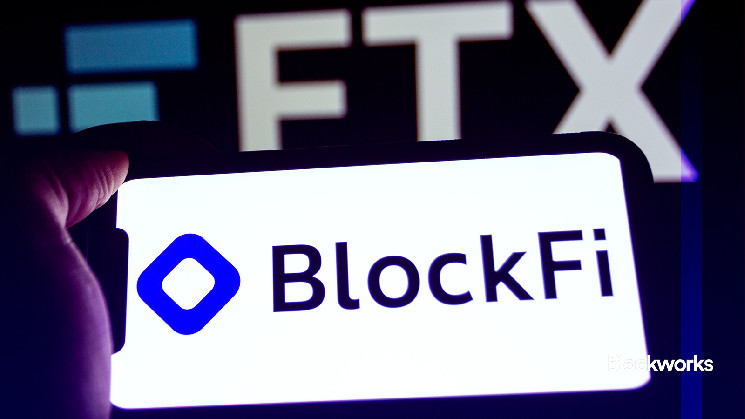We’re nearing the conclusion of several crypto bankruptcies, including those of BlockFi and FTX.
FTX will have a hearing early next month that could see its reorganization plan confirmed by the court.
Earlier this summer, the estate said that the plan received support from creditors, though it’s a bit controversial. Pending the outcome of the confirmation hearing, the bankruptcy could be wrapped up as soon as the end of this year.
And it’s not the only bankrupt firm that’s nearing the finish line. BlockFi is also getting closer to bringing its proceedings to a close.
Read more: FTX’s bankruptcy isn’t the success you think it is
Haynes and Boone partners Richard Kanowitz and Alexander Grishman told Blockworks that their client, BlockFi, is in the “final stages” after the plan was confirmed “a while ago.”
The timing is still a bit in the air, but the estate is making “interim distributions and looking forward to making a final distribution,” Kanowitz added. The firm’s international arm is still undergoing proceedings with Bermuda courts before it can fully wrap the proceedings.
One of the biggest issues with FTX’s bankruptcy proceedings is the court’s ruling that distributions will be made in cash instead of in-kind.
BlockFi’s creditors also pushed for the distributions to be made “in-kind,” which essentially means their crypto is handed back to them rather than receiving a sum of cash.
But, while BlockFi hadn’t misplaced crypto like FTX did, the problem remained that there wouldn’t have been enough crypto to repay the creditors, both Grishman and Kanowitz said. The two lawyers said their client was able to provide reports detailing its holdings.
“That [puts the] cart before the horse, right? If they had all those assets to be able to return to customers, [they wouldn’t have needed] to file bankruptcy,” Kanowitz explained.
“If they had enough crypto, they would never have needed to file the bankruptcy, because customers wouldn’t be pulling out their money. They would have just continued to trade. But because, again, going back to why BlockFi failed…Alameda owed BlockFi Lending and BlockFi International over $600 million of crypto lent to it but didn’t give it back,” he added.
However, unlike FTX, the two lawyers said they were able to access reports and see where assets were. It’s no secret that the teams working for the bankruptcy estate at Sam Bankman-Fried’s former company didn’t have such an easy time.
Kanowitz called BlockFi the “golden standard” when it comes to crypto bankruptcies due to the organization of the team, which was also partially thanks to Grishman. Prior to the bankruptcies, Grishman worked with BlockFi before moving to help with the bankruptcy once the firm filed after the collapse of FTX.
But there’s long been one question lingering in the back of my mind: Is our current bankruptcy code sufficient enough to tackle crypto?
Kanowitz essentially said yes, that the crypto bankruptcies didn’t have anything “out of the ordinary that the bankruptcy code couldn’t handle.”
Grishman, who worked with BlockFi prior to the bankruptcy, agreed with Kanowitz.
“There was nothing that was so novel” about the case, Grishman said. “It’s just that the underlying asset is novel, and that it is cryptocurrency, but it’s nothing that the bankruptcy courts are not able to deal with.”
Read more: Why FTX is different from other crypto bankruptcies
When I posed the question to Bill Hughes, senior counsel and director of global regulatory matters at Consensys, he had a bit of a different take.
“This is the very reason that the industry is calling for rules that are tailored to how crypto works. You can’t just say that the rules that cover TradFi should just be applied when the mechanism through which the blockchain works and users use it is different. To ignore that is to whitewash differences that make the rules in some sense inapplicable. If you apply them then you can’t use the blockchain,” Hughes said.
He continued: “What has to happen is, where necessary, you come up with new approaches that seek to serve similar ends, and deal with the reality in which people use a peer-to-peer network. That requires changes to accounting rules […] and adding to parts of the bankruptcy code. Perhaps the tax code needs some tweaks. There’s a way to do it that serves the purposes of the law, but does so in a way that serves the system.”
But there’s a silver lining in all of this, according to Grishman.
“I think, in the long run…it is helping us craft and develop these products, and helping the market see exactly what they want, how they want their counterparties to treat their assets…hold them in custody, off-balance sheet, so you know, they’re not part of their bankruptcy’s estate to the extent that happens in the future.”
 blockworks.co
blockworks.co
